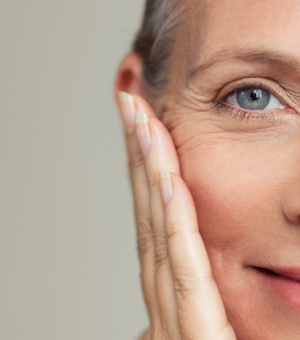When it comes to our skin, the old saying "you can't choose your family" takes on a new meaning. Genetics play a pivotal role in determining the foundation of our skin health. Understanding this influence is key to tailoring effective skincare routines. In this blog post, we'll delve into the intricate relationship between genetics and skin health, exploring what aspects are beyond our control and what proactive steps we can take to maintain healthy, radiant skin.
The Genetic Blueprint: Your Skin's Starting Point
Our genetic makeup provides the blueprint for our skin. Factors such as skin type, pigmentation, and propensity for certain conditions are inherited. If your parents struggled with acne or had a predisposition to conditions like eczema or psoriasis, it's likely that you may face similar challenges.
Aging Gracefully: How Genetics Influence the Aging Process
Ever wondered why some people seem to age more slowly than others? Genetics hold the answer. The rate at which our skin ages, the development of wrinkles, and the loss of elasticity are influenced by our genetic code. While we can't change our genes, understanding their role empowers us to make informed choices for our skincare routines.
What You Can't Control: Embracing Your Genetic Heritage
Accepting the aspects of skin health dictated by genetics is the first step towards effective skincare. If you're prone to certain conditions, working closely with a dermatologist can help manage and alleviate symptoms. Genetics may determine the starting point, but they don't dictate the entire journey.
While genetics provide the canvas, environmental factors act as the painter. Sun exposure, pollution, and lifestyle choices can amplify or mitigate genetic predispositions. Understanding the interplay between genetics and the environment allows us to take control of external influences on our skin.
Proactive Skincare: What You Can Do
Despite the genetic cards you've been dealt, there are several aspects of skincare within your control:
Sun Protection: Shield your skin from harmful UV rays by using sunscreen daily. This simple step can prevent premature aging and reduce the risk of skin cancer.
Healthy Lifestyle: Maintain a balanced diet, stay hydrated, and get adequate sleep. These lifestyle factors contribute to overall skin health and can counteract some genetic predispositions.
Stop smoking and reduce your alcohol consumption
Customized Skincare Routines: Work with your dermatologist to create a skincare routine tailored to your skin type and concerns. Professional advice ensures that you're using products suitable for your unique needs.
Early Detection and Intervention: Regular skin check-ups can detect potential issues early. While genetics may set the stage, early intervention can significantly impact outcomes. It is essential to have new lesions checked that evolve or persist for more than a few months. Particularly if there is a family history of skin cancer
In the complex dance between genetics and skincare, knowledge is power. Embracing your genetic heritage while taking proactive steps to care for your skin allows you to navigate the journey with confidence. Remember, while some aspects are beyond your control, there's much you can do to ensure your skin not only reflects your genetics but also the care and attention you invest in its well-being. Consult with our dermatology experts to craft a personalized skincare plan that harmonizes with your unique genetic makeup.



